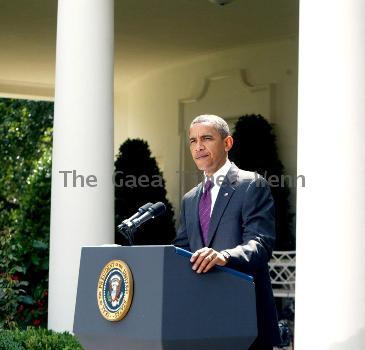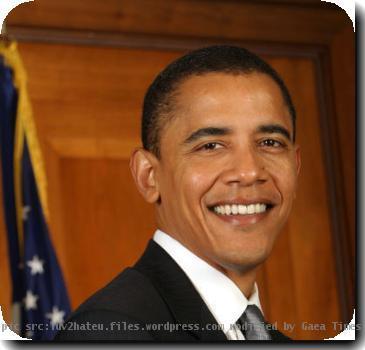Jury selection begins for youngest Guantanamo detainee at 1st war-crimes trial under Obama
By Mike Melia, APTuesday, August 10, 2010
Jury selection on at 1st Gitmo trial under Obama
GUANTANAMO BAY NAVAL BASE, Cuba — A smiling Omar Khadr appeared in a suit and tie Tuesday and greeted prospective jurors at the start of his trial, billed by defense lawyers as the first war-crimes prosecution of a child soldier since World War II.
Khadr, the Toronto-born son of an alleged al-Qaida financier, is the youngest prisoner at Guantanamo and the only remaining Westerner.
He was 15 when he allegedly hurled a grenade that killed a U.S. Delta Force soldier during a firefight in Afghanistan in 2002.
The trial will be closely watched as the first under President Barack Obama, whose administration is weighing whether to use the embattled Guantanamo courts as a possible venue for dozens of other detainees — including “high-value” figures such as the self-professed mastermind of the Sept. 11, 2001 attacks and four alleged henchmen.
The Khadr case has been held up by legal wrangling at several versions of the tribunal system since he made his first appearance in the courthouse overlooking the Caribbean Sea in 2006.
The Canadian, now a bearded and broad-shouldered man of 23, traded his typical prison jumpsuit for a gray suit before the start of jury selection. As his Pentagon-appointed attorney introduced him to the pool of 15 U.S. military officers, Khadr stood and said to them in English: “How are you?”
Defense lawyers and prosecutors spent much of the day asking prospective jurors their opinions on matters including the significance of a juvenile offender’s age and the treatment of detainees at Guantanamo Bay.
Advocates have argued that prosecuting somebody who was so young at the time of the alleged offense would violate international treaties protecting child soldiers. But the court sided with prosecutors, who argued that such protections do not apply to Khadr.
At one point Tuesday, however, the judge interrupted a prosecutor’s questioning to say that jurors could consider Khadr’s age in deciding whether he intended to commit a crime.
“It’s certainly something you may consider in deciding whether the government has proved its case beyond a reasonable doubt,” said the judge, Army Col. Pat Parrish.
Once a panel of at least five officers is seated, opening arguments are planned as early as Wednesday in a trial expected to last roughly three weeks.
Defense lawyers say Khadr was himself a victim, forced into war by a family with close ties to Osama bin Laden. His father, Ahmed Said Khadr, was an Egyptian-born Canadian citizen and alleged militant killed in 2003 when a Pakistani military helicopter shelled the house where he was staying with senior al-Qaida operatives.
“He’s not a real Taliban warrior. He’s a kid who was put in an unfortunate situation,” said Dennis Edney, a Canadian lawyer for Khadr.
Khadr faces a total of five charges including murder for allegedly killing U.S. Army Sgt. 1st Class Christopher Speer, 28, of Albuquerque, New Mexico, after a battle at an al-Qaida compound on July 27, 2002. Military prosecutors say he also planted explosive devices to kill coalition forces and spied on U.S. troops.
He has pleaded not guilty and faces a maximum life sentence if convicted.
Meanwhile a formal conviction is imminent for another detainee, al-Qaida cook Ibrahim Ahmed Mahmoud al-Qosi, who reached a plea agreement with military prosecutors. Details of the plea bargain with the 50-year-old from Sudan were sealed as part of the deal but will be revealed eventually following an official review, said Navy Capt. David Iglesias, a prosecution spokesman.
The system established by the Bush administration to prosecute terror suspects following Sept. 11 has yielded only three other convictions, including two detainees who have already served their sentences and returned home.
The U.S. Supreme Court in 2006 struck down one version of the military trials, known as commissions, before Congress and the Bush administration came up with new trial rules.
Obama revised them further to extend more legal protections to detainees, but human rights groups say the system is still unfair and prosecutions should be held in U.S. civilian courts instead.
The candidates for the tribunals include alleged Sept. 11 mastermind Khalid Sheikh Mohammed and four alleged accomplices who are held at Guantanamo Bay. Attorney General Eric Holder announced in November that the trial would be moved to federal court in New York, but the administration backtracked and put the issue under review after local officials objected to the costs and potential security threat.
Tags: Barack Obama, Caribbean, Cuba, Guantanamo Bay Naval Base, Latin America And Caribbean, Military Legal Affairs, North America, United States



